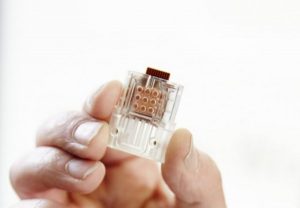In partnership with DNA Electronics, Imperial College London researchers had developed a revolutionary USB stick that can detect HIV in the bloodstream.
In order to detect the virus, it’s enough to use a drop of blood. Then the USB stick generates an electrical signal that can be read by a computer, laptop or handheld device.
We have taken the job done by equipment the size of a large photocopier, and shrunk it down to a USB chip” – Dr Graham Cooke, study author
This detection is useful for HIV patients for managing their treatment and to maintain their health. The longer the detection of HIV virus the harder to treat it, because antiretroviral treatment that is used for HIV may stop changing the status due to the resistance built by the virus to the medicine. This what the USB stick is working to solve, providing accurate results in a surprisingly short time.
To implement this, researcher had worked on “a novel complementary metal-oxide semiconductor (CMOS) chip based, pH-mediated, point-of-care HIV-1 viral load monitoring assay that simultaneously amplifies and detects HIV-1 RNA”.
Conventional ways to test HIV may take several days, but this device is promising to give results in less than 30 minutes! In addition, the detection can be done remotely, which allows faster detection for patients by themselves, and for some areas that don’t have advanced lab tests.
This is a great example of how this new analysis technology has the potential to transform how patients with HIV are treated by providing a fast, accurate and portable solution. At DNAe we are already applying this highly adaptable technology to address significant global threats to health, where treatment is time-critical and needs to be right first time.” – Professor Chris Toumazou, DNAe’s Founder, Executive Chairman and Regius Professor at the Department of Electrical and Electronic Engineering at Imperial College London
Read more: 30 Minutes HIV Detection Using USB Stick

